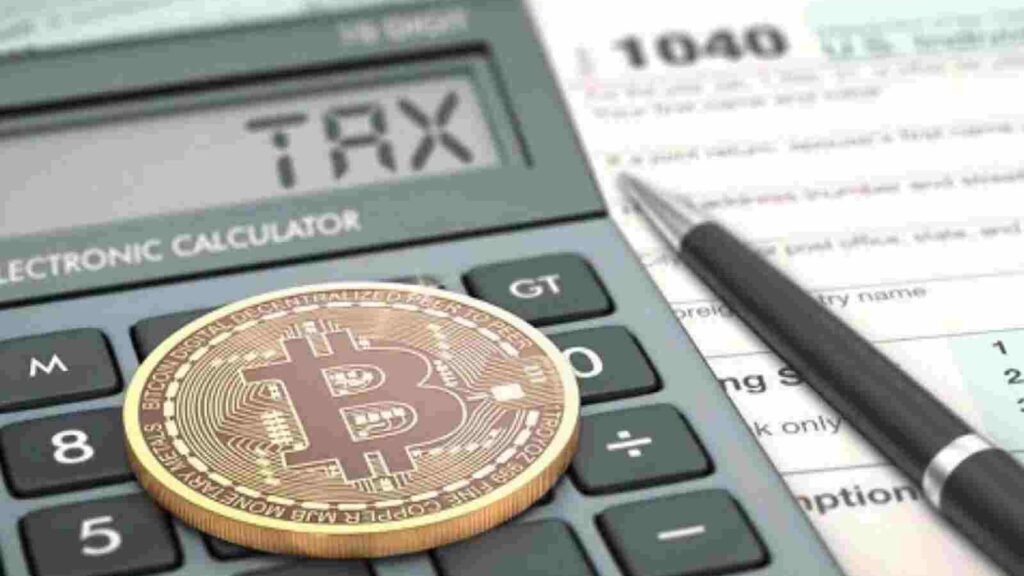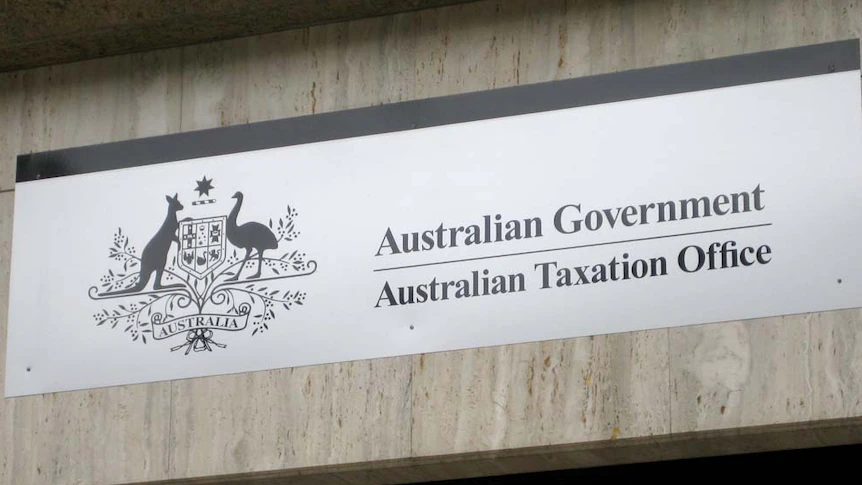How Much Tax Is On Cryptocurrency In Australia 2025
In Australia, the taxation of cryptocurrencies has become an essential consideration for investors, traders, and casual users.
Understanding your tax obligations is crucial as the Australian Taxation Office (ATO) increasingly focuses on the implications of crypto transactions.
Every trade, sale, or cryptocurrency exchange can trigger a capital gains tax (CGT) event, which must be reported in your tax return.
Navigating the tax landscape concerning crypto can be complex due to the ATO’s evolving guidelines.
Whether you’re using crypto for purchases, investing for the long term, or trading frequently, knowing how capital gains and losses affect your taxable income is necessary.
The ATO has provided specific guidance on various scenarios, from hard forks to the disposal of digital currency, establishing clear expectations for compliance.
Considering the ATO’s proactive approach to monitoring crypto transactions, staying informed and tax-compliant is more critical than ever.
Professional advice is often beneficial as it helps to demystify the reporting process and ensure you adhere to the current rules.
Remaining aware of these requirements and accurately reporting your crypto-related income will help you avoid penalties and meet your legal responsibilities.
Australia’s Tax on Crypto: Navigating New Regulations for Digital Assets

In Australia, the Australian Taxation Office (ATO) recognizes cryptocurrencies not as currency but as property and, thus, as an asset for tax purposes. Engaging in cryptocurrency transactions may result in capital gains or losses, which are subject to Capital Gains Tax (CGT).
Taxable Events:
- Trading or Selling Cryptocurrency: You must calculate your capital gain or loss when you exchange cryptocurrencies for fiat currency, like Australian dollars, or trade it for another crypto asset.
- Spending Cryptocurrency on Goods and Services: Using crypto to purchase items triggers a CGT event, as it is equivalent to selling the asset.
Reporting CGT:
- To report capital gains from crypto assets on your tax return:
- Use myTax for online lodging or
- Complete the capital gains section on a paper tax return form.
If the cryptocurrency was held for over a year, you might be entitled to a 50% CGT discount. Note that if you’re considered a trader rather than an investor, different tax rules may apply, such as business tax rates and the ability to claim a slight business tax offset.
Record-Keeping:
- Keep detailed records of dates, values, and types of transactions.
- Data-matching programs of the ATO track reported transactions against data from cryptocurrency exchanges such as Bybit or Crypto.com and can identify discrepancies.
Consider consulting a tax professional experienced in crypto transactions for precise guidance on your cryptocurrency tax obligations.
How are cryptocurrencies taxed in Australia?
In Australia, your dealings in cryptocurrencies such as Bitcoin are subject to taxation. The Australian Taxation Office (ATO) treats cryptocurrencies as property and an asset for capital gains tax (CGT) purposes.
Capital Gains Tax (CGT)
- When you sell or exchange cryptocurrency, the difference between the acquisition cost and the sale proceeds is considered a capital gain or loss.
- You may be eligible for a CGT discount if you hold a cryptocurrency for over 12 months.
Cryptocurrency for Personal Use
- If you purchase cryptocurrency for personal transactions (e.g., goods or services), and the total cost is less than $10,000, these are generally not subject to CGT.
Trading versus Investing
- How your crypto activities are taxed depends on whether you are a trader or an investor.
- Investors declare capital gains and losses from disposals.
- Traders, on the other hand, report profits as business income.
Record Keeping
- It’s imperative to maintain meticulous records of all your cryptocurrency transactions, including:
- Dates of transactions
- The value in Australian dollars at the time of the transaction
- What was the transaction for
- Who the other party was (even if it’s just their wallet address)
You should consult the Australian Taxation Office or a tax professional for specific instructions and more detailed guidelines. Remember that these regulations are subject to change, and staying updated with the ATO’s latest guidance is crucial for compliance.
How much tax do you pay on crypto in Australia?

In Australia, cryptocurrency taxation depends on your activities and the nature of your investments. If you buy, sell, or exchange cryptocurrencies, such transactions are subject to Capital Gains Tax (CGT).
-
Personal Use Asset: Your gains may be tax-exempt if you’ve purchased cryptocurrencies as a personal use asset and the cost is less than A$10,000.
-
Investment: Cryptocurrency held as an investment is subject to CGT upon disposal. This includes selling, trading, or gifting your cryptocurrency.
Remember, calculating your CGT involves:
- Asset Cost: Determine the cost base, including the purchase price and associated costs.
- Capital Proceeds: Identify the total amount received from the disposal.
- Capital Gain/Loss: Subtract the cost base from the capital proceeds.
If you’ve held the asset for over 12 months, you may be eligible for a 50% CGT discount.
Crypto received as income from mining or staking is taxed at your marginal tax rate. The Australian Tax Office (ATO) requires you to keep detailed records of all transactions, including dates, amounts in AUD, and the purpose of the transaction.
The ATO provides thresholds for tax rates in the fiscal year. For instance, you do not owe income tax if your income is below A$18,200. However, this does not automatically exempt you from declaring your crypto-related income.
Income Brackets and Tax Rates for 2023-2024:
| Taxable Income | Tax on Income |
|---|---|
| $0 – $18,200 | Nil |
| $18,201 – $45,000 | 19c for each $1 over $18,200 |
| $45,001 – $120,000 | $5,092 plus 32.5c for each $1 over $45,000 |
| $120,001 and over | $29,467 plus 37c for each $1 over $120,000 |
It’s crucial to consult with a tax professional to ensure you meet your obligations. The ATO guides reporting and calculating the cryptocurrency tax, which should be included in your tax return.
Capital Gains and Losses
When you trade cryptocurrency in Australia, you need to understand the implications of capital gains and losses. Capital gains are the profits that arise when you sell your crypto assets for more than the purchase price. Conversely, a capital loss occurs when you sell assets for less than their purchase cost.
Calculation of Capital Gains
To calculate your capital gains or losses:
- Deduct the purchase price and associated costs from the sale price.
- Account for any capital losses to reduce the gain.
Short-term gains are made on assets held for less than 12 months. Unlike long-term gains, they don’t qualify for CGT discounts and are taxed according to your income tax bracket.
Long-term gains apply to crypto held for more than 12 months. Here’s where the 50% CGT discount comes into play—only half the gain is taxed, effectively reducing your tax liability.
Offset Gains with Losses
You can use capital losses to offset capital gains in the same income year. If losses exceed gains, they can be carried forward indeterminately to offset future capital gains. However, you cannot offset capital losses against your ordinary income.
Rules for Carrying Losses Forward:
- Please keep track of losses as they can be applied to future gains.
- Do not reduce capital losses by the CGT discount before applying them to current or future gains.
You can better manage your cryptocurrency portfolio and tax obligations by understanding these rules.
Specific Crypto Transaction Types
When you engage in cryptocurrency transactions in Australia, understanding the tax implications of each transaction type is crucial for compliance with the Australian Taxation Office (ATO).
-
Staking: The rewards received are considered income if you are staking your crypto assets. You are taxed on these staking rewards at their market value on the date you receive them.
-
Airdrops: Similarly, airdrops are treated as ordinary income at the time of receipt. The fair market value of the airdropped tokens is used to determine the taxable amount.
-
Payment for Goods or Services: If you receive crypto as payment for goods or services, it’s recognized as income based on the value of the cryptocurrency when you receive it.
-
DeFi Rewards: Participation in decentralized finance (DeFi) can result in rewards. These are taxable as ordinary income at the fair market value upon receipt.
Remember, each type of transaction may affect your tax obligations differently. It is essential to keep detailed records of all cryptocurrency transactions to report and meet your tax obligations accurately. Ensure you consider each transaction’s date, type, value, and context. If necessary, consult with a tax professional specializing in cryptocurrency to navigate the complexities of your circumstances.
Crypto Mining and Business Activities
When engaging in crypto mining in Australia, the tax implications depend on whether your activities are considered a business or a hobby. If you mine cryptocurrency as a business, the income generated is assessable and should be reported in your tax return.
Here’s a simple guide to help you understand your obligations:
-
Business Activity: If you’re mining to make a profit, with a business plan in place, and undertake substantial, ongoing efforts in mining, your activities may be considered a business.
- Income: Money earned from mining must be included in your assessable income.
- Expenses: You can claim deductions for expenses related to your mining operations, including electricity, hardware depreciation, and other business-related costs.
-
Hobby Activity: If you mine on a small scale or lack a profit-making intention, it’s likely a hobby. No need to declare the income, but you can’t claim expense deductions.
For those treating mining as a business activity, the Australian Taxation Office (ATO) requires detailed record-keeping, including:
- Dates of transactions
- Value of the cryptocurrency in Australian dollars at the time of the transaction
- Purpose of the transaction
- Details of the other party involved (even if it’s just their cryptocurrency address)
Finally, mined cryptocurrencies are subject to Capital Gains Tax (CGT) upon disposal. Whether selling, trading, or gifting, a CGT event is triggered and must be reported.
Remember, crypto regulations can evolve, so stay informed on the latest ATO guidelines for your 2024 tax obligations.
Record-Keeping Requirements
When dealing with cryptocurrency in Australia, you must maintain thorough records to meet the Australian Taxation Office (ATO) standards. Your record-keeping efforts should encompass all transactions, including buys, sells, trades, and other cryptocurrency disposals.
Here’s what you need to keep track of:
- The date of each transaction
- The value of the cryptocurrency in Australian dollars at the time of the transaction (you can use a reputable crypto tax calculator or data from your digital wallet for this)
- The purpose of the transaction
- The recipient’s details (even if it’s just their digital wallet address)
For every crypto asset you own, ensure that you document the following:
- The date you acquired them
- The cost of acquisition
- Transaction details when you sell, trade, or gift the asset
- The date of each disposal or sale
- The proceeds you received from disposals
Effective record-keeping tips:
- Consistently update your records post-transaction to avoid a backlog.
- Use digital tools to sync your exchange and wallet information, automating the process.
- Retain records for at least five years from the date of the last transaction they relate to.
Keeping precise documentation of your cryptocurrency dealings is a regulatory requirement and essential for accurate tax reporting. Adhering to these practices will ensure compliance and help avoid potential disputes with the ATO.
Penalties for Non-Compliance
You risk incurring various penalties when you fail to report cryptocurrency transactions to the Australian Taxation Office (ATO). These penalties are directly tied to the severity of the non-compliance and the time elapsed since the reporting deadline.
Immediate Consequences:
- You may be charged a Failure to Lodge (FTL) on Time penalty upon missing the initial deadline.
- This penalty is calculated at one penalty unit for each period of 28 days that the document is overdue, to a maximum of five penalty units.
Penalty Units:
- As of July 2020, each penalty unit is AUD 222.
| Delay in Lodging | Penalty Units | Equivalent Fine (AUD) |
|---|---|---|
| Up to 28 days | 1 unit | $222 |
| 29-56 days | Two units | $444 |
| 57-84 days | Three units | $666 |
| 85-112 days | Four units | $888 |
| 113+ days | Five units | $1,110 |
Incremental Increase:
- For continued non-compliance, the ATO can impose additional penalties.
- These additional fines are proportionate to the length of the delay and the amount of tax you failed to report.
It’s important to note that these are just the preliminary penalties for lodging your tax return delay. Further action could take a turn towards legal proceedings, not just financial penalties, particularly in tax evasion or fraud cases. The maximum penalty for tax evasion can include up to 200 penalty units and two years imprisonment, highlighting the gravity of such offenses.
To avoid these penalties, ensure timely and accurate reporting of all cryptocurrency-related transactions in line with ATO regulations.
Tax Minimization Strategies
To reduce the taxes on your cryptocurrency holdings in Australia, consider the following lawful strategies:
-
Hold Assets for Over a Year: By retaining your crypto assets for more than 12 months, you may be eligible for the Capital Gains Tax (CGT) discount, which can halve your capital gains.
-
Tax-Loss Harvesting: Offset your realized capital gains with any realized capital losses. Selling crypto assets at a loss can lower your overall taxable income.
-
Timing Is Key: Plan the disposal of your assets in a year when your income is lower to reduce the amount of tax payable potentially.
-
Stay Informed on Thresholds: Understand the tax-free threshold currently allowing you to earn up to $18,200 without paying income tax. This can be a helpful strategy if you expect a lower income year.
-
Usage of Crypto Tax Software: Employ specialized software to accurately report your crypto transactions, ensuring compliance and maximizing your deductions.
Remember to comply with Australian Taxation Office (ATO) rules to avoid penalties. Also, be aware of the wash sale rule, which prohibits selling assets at a loss and repurchasing them shortly after to claim a tax benefit. Always ensure that your transactions have an economic substance apart from just realizing a tax loss.
Please ensure that you consult with a tax professional to navigate complex tax situations and remain compliant with the latest ATO guidelines.
Common Misconceptions About Crypto Tax
Regarding the taxation of cryptocurrencies in Australia, many misconceptions can lead to confusion and potential misreporting. Here, we’ll address some of the more prevalent misunderstandings:
-
Using Crypto for Purchases: It’s often thought that using cryptocurrencies to buy goods or services is not taxable. This is incorrect. The Australian Taxation Office (ATO) treats crypto used for purchases as a disposal, potentially leading to a capital gains tax (CGT) event.
-
Crypto-to-Crypto Transactions: Some believe that swapping one cryptocurrency for another is not taxable. However, this is considered a CGT event and you must calculate the capital gain or loss at the time of the trade.
-
Holding Crypto: Merely holding cryptocurrency does not trigger a tax event. You are only taxed upon disposal, such as selling, trading, or spending the crypto.
Crypto Gifts and Personal Use:
- Gifts: If you receive crypto as a gift, it will not be taxable until you dispose of it. However, the giver may be subject to CGT.
- Personal Use: Crypto used for personal use can sometimes be exempt from CGT if it’s transacted immediately after acquisition and the value is less than $10,000. This does not apply if you hold the crypto as an investment.
Remember, keeping detailed records of all your crypto transactions is crucial, as the ATO requires you to report any capital gains or losses in your tax return.
Can You Switch from an Investor to a Trader?
In Australia, it is possible to change your status from a cryptocurrency investor to a trader. This transition is significant in terms of taxation because the Australian Taxation Office (ATO) taxes investors and traders differently. Below are key points you need to understand:
Definition:
- Investor: You hold crypto for long-term appreciation and investment.
- Trader: You frequently buy and sell crypto as part of a business activity.
Taxation Implications:
- As an investor, capital gains tax (CGT) applies, and you may be eligible for a CGT discount if you hold the asset for more than 12 months.
- As a trader, your profits are considered ordinary income, subject to income tax rates without eligibility for the CGT discount.
Changing Status:
- Notify the ATO: Inform the ATO of your change in status.
- Record-keeping: Change your CGT assets to trading stock.
- Consistency: Once a trader, you must consistently file as one.
Considerations:
- Purpose: Ensure that the purpose of your crypto transactions aligns with trading activities.
- Frequency: A high volume of transactions may reflect trading activity.
- Organisation: Conduct the activity in a business-like manner.
Documentation:
- Maintain comprehensive records of all transactions, including dates, values, and purposes.
This switch should not be taken lightly, as it entails different reporting requirements and can alter the way your income is taxed. If you’re considering this transition, consult a tax professional for personalized advice.
What if You Make a Loss on Your Crypto?
If you incur a loss on your cryptocurrency investments, it’s critical to understand how this impacts your taxes. In Australia, if you make a capital loss on crypto assets, you can use it to offset capital gains you’ve made in the same financial year. If your capital losses exceed your capital gains, the excess loss can be carried forward to offset gains in future years.
Losses on Personal Use Assets:
- If the loss was on cryptocurrency considered a personal use asset (typically held for personal transactions and not investment), then losses may not be claimed as capital losses.
Record-Keeping for Losses:
- Maintain thorough records, as with gains, your losses require documentation for the Australian Tax Office (ATO).
Carrying Forward Losses:
- Timeframe: No expiration on carrying forward losses
- Application: Only against capital gains, not ordinary income
Steps to Report a Crypto Loss:
- Calculate your capital loss by subtracting the sale proceeds from the original cost base.
- Document the loss in your tax return in the capital gains section.
- If your total capital losses exceed capital gains, carry forward the remaining loss.
- Apply the loss in subsequent years against any capital gains.
Remember to seek advice from a tax professional to navigate the specifics of your situation. Tax laws change periodically, and a professional can ensure you utilize your losses optimally within the frameworks set by the ATO.
Can the ATO Track My Crypto Wallet?

The Australian Taxation Office (ATO) possesses the capabilities to track your cryptocurrency transactions. If you are engaged in crypto activities, you must know the ATO’s measures to monitor and ensure compliance with Australian tax laws.
Data Collection: The ATO has a data-matching program dedicated to cryptocurrency that started in 2019. The objective is to collect data related to cryptocurrency transactions from Australian cryptocurrency designated service providers (DSPs).
- Designated Service Providers: Your data could be on file with the ATO if you’ve used a DSP in Australia.
- Monitoring Transactions: The ATO tracks the flow of crypto to identify tax events such as capital gains and income.
Tax Responsibilities: When you buy, sell, trade, or otherwise dispose of cryptocurrency, you have certain obligations:
- Record-keeping: You must keep detailed records of all crypto transactions.
- Reporting: All capital gains or losses from crypto assets need to be reported in your annual tax return.
ATO’s Guidelines: The Australian Tax Office provides extensive guidelines on how various crypto transactions are taxed, ensuring that individuals and entities are well-informed about their tax obligations related to crypto assets, including non-fungible tokens (NFTs).
Remember, being proactive and maintaining accurate records of your crypto dealings is crucial for tax purposes. Your adherence to your tax responsibilities can prevent any issues with the ATO.
Frequently Asked Questions
Cryptocurrency taxation in Australia can be complex. It is important for you to understand how crypto transactions impact your taxes to comply with the Australian Tax Office (ATO) requirements.
What methods are utilized for calculating cryptocurrency taxes in Australia?
You calculate cryptocurrency taxes in Australia by determining capital gains or losses for each transaction. If you hold the asset for more than 12 months, you may be eligible for a capital gains tax discount.
Can cryptocurrency trading losses be deducted on my Australian tax return?
Yes, you can deduct cryptocurrency trading losses against other capital gains or carry them forward to offset against future capital gains. However, these losses must follow the ATO’s rules for capital losses.
Are there any specific tax regulations regarding crypto-to-crypto trades by the ATO?
Crypto-to-crypto trades are considered taxable events by the ATO. You must calculate the market value in Australian dollars at the time of the trade to report for tax purposes.
How do I avoid crypto tax in Australia?
It is mandatory to pay taxes on eligible cryptocurrency transactions. Avoiding crypto tax can lead to penalties. The lawful way to reduce crypto tax is through legitimate deductions and capital loss offsets.
What happens if you don’t declare crypto tax?
Failing to declare crypto tax can result in an audit, penalties, or sanctions from the ATO. It is crucial to keep accurate records and report all taxable crypto transactions.
Is DeFi Taxed in Australia?
DeFi, or decentralised finance, is taxed in Australia. Any income or gains derived from DeFi platforms and products such as staking, yield farming, or lending are subject to taxation and must be reported.
Conclusion: Taxation Of Cryptocurrency In Australia
In Australia, your cryptocurrency holdings are subject to Capital Gains Tax (CGT) regulations. When disposing of your crypto assets, such as through sales, trades, or purchases of goods and services, CGT events occur.
Key Points to Remember:
- Your crypto transactions are typically taxed as capital gains or losses.
- A 50% CGT discount is applicable if assets are held for more than 12 months.
- Capital losses offset capital gains but can’t be applied against your regular income.
Crypto tax compliance hinges on accurate and timely reporting. You’re advised to maintain comprehensive records of all crypto transactions.
The Australian tax system includes provisions like the Personal Asset Rule, which might exclude from CGT any crypto assets used personally if the cost is below AUD 10,000.
The tax landscape for cryptocurrencies in Australia is evolving. As digital currencies gain widespread acceptance, it’s reasonable to anticipate further clarifications and amendments to the current tax framework.
Staying updated on the latest legislation will help ensure your tax affairs are in order.
Remember to consult with a tax professional who can provide personalized advice tailored to your specific situation in the dynamic realm of crypto taxation.







